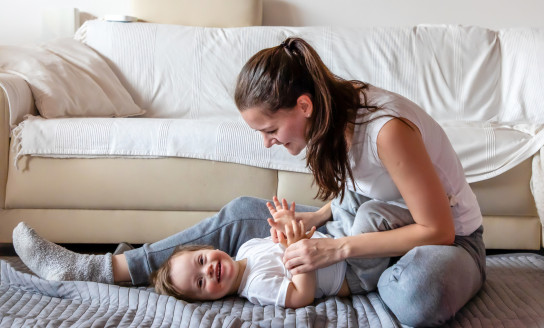"My baby - my son - has been the most joyous addition to our family, and I couldn't imagine life without him." - Kim, mum of Brendon, and President of the New Zealand Down Syndrome Association
What is Down syndrome?
Down syndrome, or trisomy 21, occurs when your baby’s cells contain an extra chromosome (number 21).
It's a life-long condition that causes a range of delays in learning and development.
"To me, Aria is like every other child that I've had ... Maybe it's [a Down syndrome diagnosis] not this big, bad thing. Maybe it's a gift, which is the way we see it as a family." - Kate, mum of Aria
Characteristics
They may have some characteristics in common with other children who have the syndrome including:
- low muscle tone and flexible joints
- excess skin on the back of the neck
- almond shaped eyes
- small ears
- a single crease across the palm of the hands
- a gap between the big toe and the second toe
- a flatter nasal bone.
However, tamariki with Down syndrome look like their families. They are not defined by the characteristics that come with having an extra chromosome.
Screening
If you're pregnant, it is completely up to you whether you want to test to check for Down syndrome or other genetic conditions. The type of test you will have depends on how far along you are in your pregnancy:
- if you're less than 14 weeks pregnant, it will be a blood test from you and a scan of your baby
- if you're 14–20 weeks pregnant, it will be a blood test only.
You should get the results in about 10 days from your doctor or midwife.
Receiving a Down syndrome diagnosis
"There was a rollercoaster of emotions ... the best thing I ever did was joining the 'NZ Parents of Kids with Down Syndrome' Facebook page. It's worth it's weight in gold." - Ruth, mum of Liam
It can be helpful to seek support from friends and whānau, and to learn about organisations or community groups for people with Down syndrome.
Early interventions and good support networks can help you and your whānau support your child to learn and develop to their best potential.
Watch this video series from KidsHealth about a family and their son Ryan.
Early days (0 to five years)
